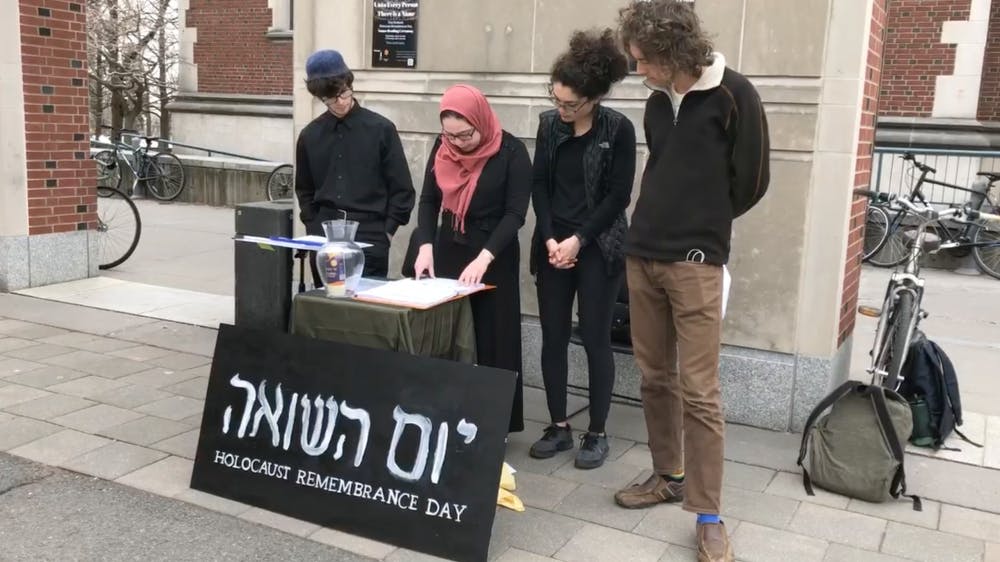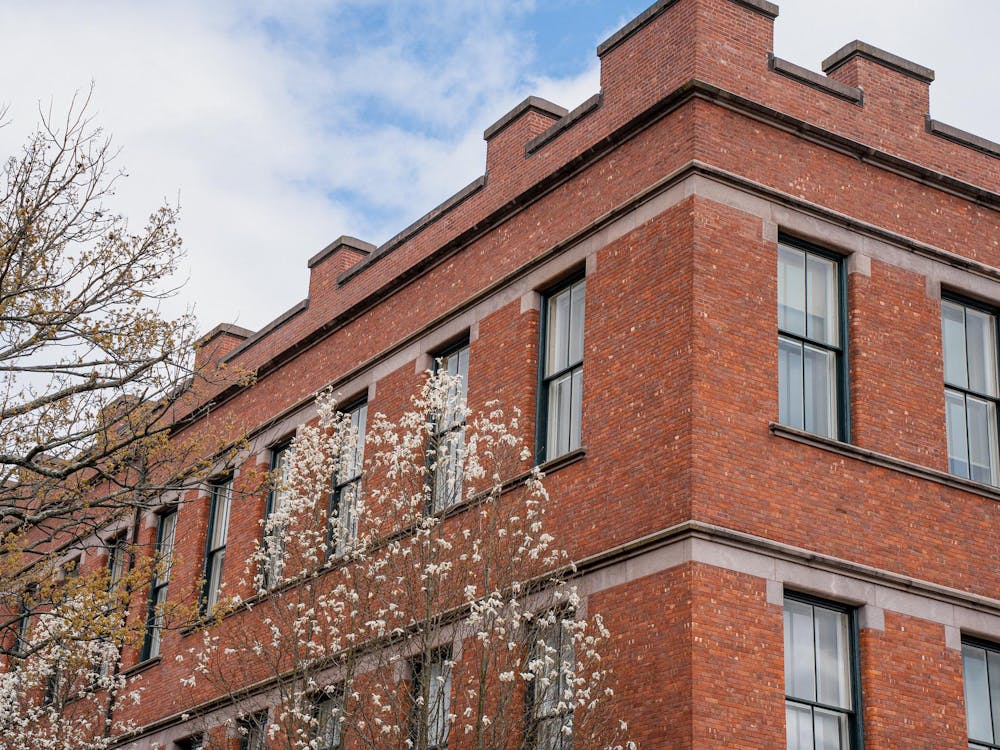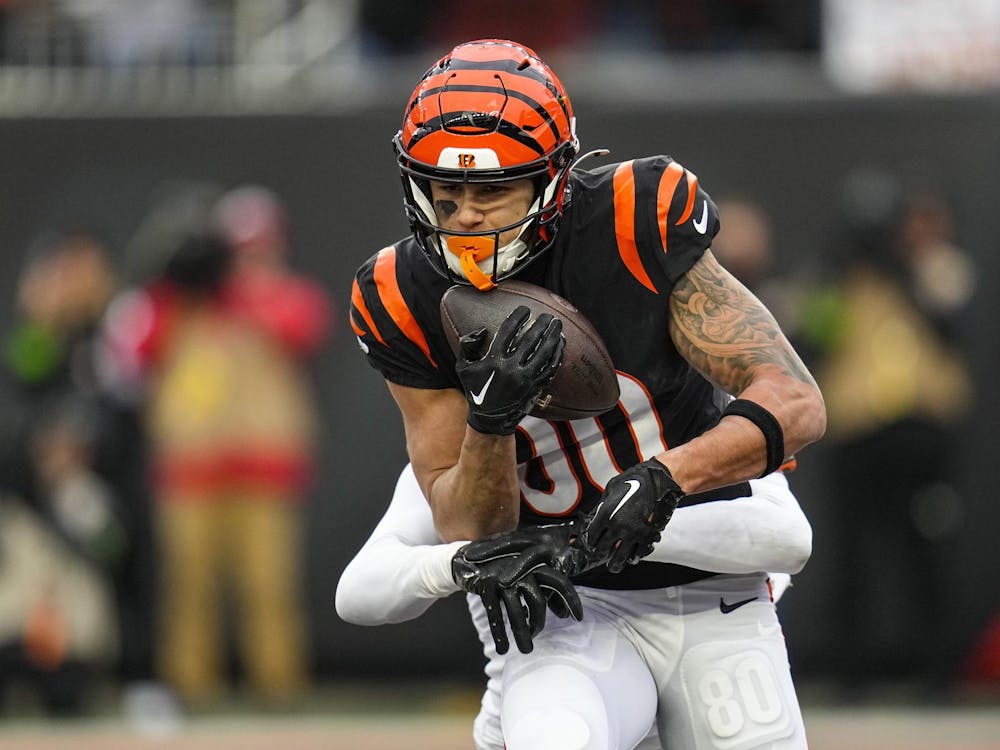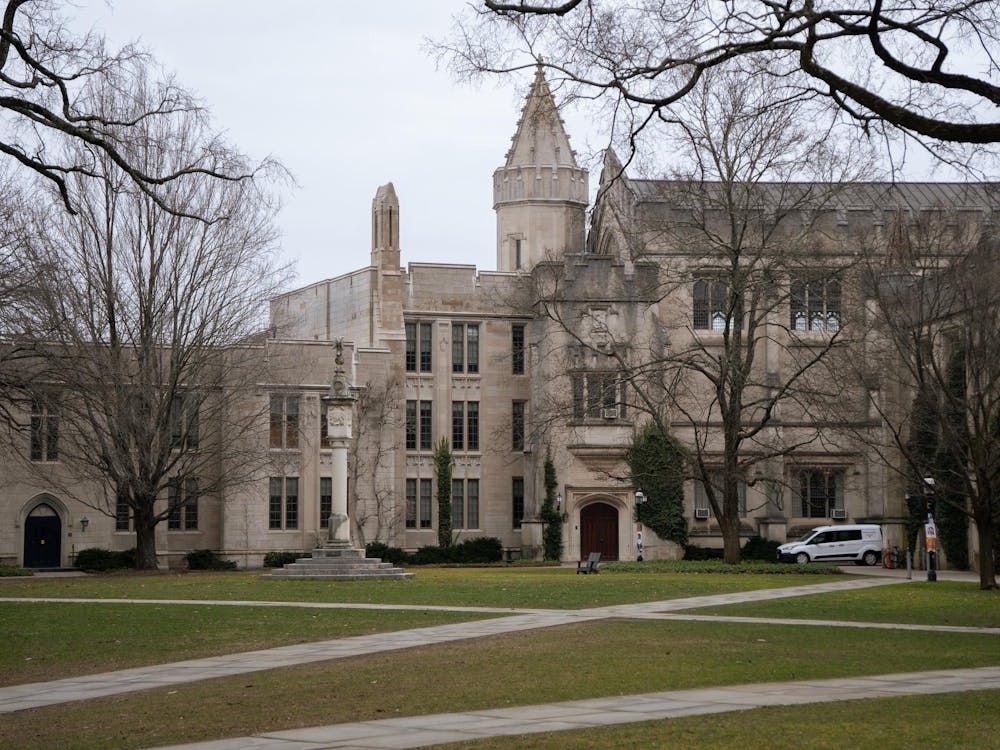Beginning on the night of April 11 until the following night, University community members came together to observe Yom Hashoah, or Holocaust Remembrance Day, through a student-led program supported by the Center for Jewish Life.
The commemoration started at 7 p.m. on Wednesday with a ceremony in the CJL, which featured a talk by Larry Buchsbaum, a Holocaust survivor and grandfather of Samuel Schultz ’19, a candle-lighting ceremony, and stories from other community members whose families were in the Holocaust.
Hannah Slabodkin ’21, who planned the program along with Raffi Snow ’18, explained that Buchsbaum shared stories about his family’s survival during the war and his eventual emigration from Europe to the newly-established state of Israel.
“He tried to define what ‘Never Again’ means to him,” said Slabodkin. “These words do not mean that genocides will never happen again [...] Instead, it is the realization that the Jewish people must secure its own survival.”
Following the ceremony, students, faculty, and staff began a 24-hour name reading of Holocaust victims, a ceremony conducted by Jewish communities nationally. Volunteers signed up for 30-minute slots via a Google Doc that circulated in the weeks leading up to the ceremony.
“We were worried at first that we would struggle to fill all of time slots, especially the ones in the middle of the night,” explained Marni Blitz, associate director of the CJL, “but these amazing students quickly and eagerly volunteered.”
Blitz added that she is grateful that the campus community honored and memorialized the victims all through the day and night. Darleny Cepin, Mathey College's Director of Student Life, volunteered for the 1 a.m. shift.
“We read the names to commemorate those who might otherwise be forgotten, and to remind ourselves that no matter the length of time, we can barely name a fraction of the victims,” Slabodkin said.
David Major ’20, whose grandparents were in the Holocaust — one in Auschwitz and both losing five siblings — signed up for the last slot: 8:30 p.m. on April 12.
“I think it's hard to comprehend six million dead,” explained Major. “It's simply too big a number to really understand, so ceremonies like these help us understand and better mourn the dead.”
Many did not anticipate how impactful the name reading would be, according to Blitz.
“If I stood there and said there were 150,000 prisoners in the Plaszow camp, it would have been difficult to say,” explained Blitz. “But I stood there and read the name ‘Sarah Finkelstein,’ who died in Plaszow at age 8 in 1944, and that was devastatingly poignant. My father’s cousin was in Plaszow. Maybe he knew Sarah, or her parents. Maybe he thought about this little girl years later when he named his own daughter Sarah. These are not just victims, they were family members and friends who deserve dignity in death.”

Slobodkin explained that she hoped the commemoration would have a tangible effect.
A survey by The New York Times found that the Holocaust is fading from memory, that a lack of basic knowledge of what happened is more pronounced among millennials.
“The scale of this tragedy is unfathomable and a haunting reality,” said Slobodkin. “I hope that this demonstration helps to replace the numbers with the individuals.”









